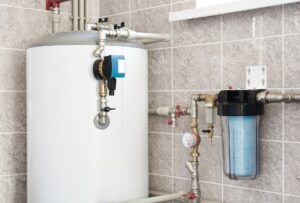The most common water heater in America is the conventional, storage tank water heater. These things are robust, affordable, and they work exceptionally well. But as your local water heater professional, we’d like to help some of our customers learn about one of the most important components of these systems.
Without this component, your storage tank water heater would last half as long as it’s supposed to. That component is the sacrificial anode rod, a metallic part that helps your system resist corrosion and remain structurally durable for a longer period of time.
Is it your first time learning about this component? Or perhaps you’re troubleshooting your water heater repair in Marlborough, and you’re wondering whether corrosion is the culprit. Either way, you’re in the right place! Keep reading to learn more about this vital component of your home water heating system.
The Science of Corrosion
Corrosion is a natural process that occurs with any metallic object in the world. As it is exposed to oxygen, it undergoes a chemical process called oxidation where the strong structural molecules of the object are made weaker. This is what happens when we say something has corroded, it has undergone that chemical reaction and is not as strong as it used to be.
Unfortunately, nothing is 100% resistant to corrosion. While some metals, like copper, are better at resisting it, corrosion occurs to pretty much every metal on the planet. And, with your water heater, corrosion can happen when metal is exposed to water as well.
After many years, corrosion can be absolutely devastating to your water heater, and it’s important to take steps to mitigate it.
What the Anode Rod Does
How does your water heater battle the forces of corrosion? With the help of a sacrificial anode rod!
To make a long story short, this component sits in your tank and attracts all of the ions and molecules that cause corrosion. It basically sacrifices itself so that the actual tank and other components of your water heater can remain corrosion free.
This means that your anode rod will need to be replaced once it fully corrodes and falls apart, which is something that our team can do for you.
When to Call It Quits
Unfortunately, a sacrificial anode rod can’t protect your storage tank water heater forever. In fact, after about 12 years, a tank water heater is going to start suffering from corrosion and old age regardless of whether the anode rod is still intact or not. This is just how old the system is designed to be, and anything beyond that is a gamble.
If you’re not happy with only having a water heater last 8-12 years, then we’d recommend upgrading to a tankless water heater. These systems have low contact with the water since they heat it up on demand. This means they can last upwards of 20 years when a storage tank system would last half that. Though, it’s important to keep in mind that these systems have their own strengths and weaknesses, and they will cost more than a storage tank system.
With Landry Mechanical Inc Plumbing HVAC & Electric, we take comfort in YOUR comfort. Schedule an appointment with us today!

